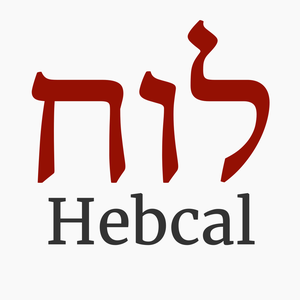Your comments
Hi, thanks for using Hebcal. Yes, it's possible to replace our links with your own using a bit of custom JavaScript.
If you are using the FullCalendar integration, you can replace the events JSON feed URL with a JavaScript function
https://fullcalendar.io/docs/events-function
Inside the function you'll want to fetch our event feed (taking care to append the info.start and info.end parameters at the end of the URL as ISO 8601 strings), and then use JSON.parse to convert the entire feed into an array of event objects. Then iterate through the array, and either delete the url field or replace it with one that points to your own website.
Does this answer your question?
Thanks for the suggestion. We will look into making this change.
We are aware that WebCal.Guru charges a monthly subscription. It's a very high quality website with tons of customizations and options. You get what you pay for.
We do have experimental iCalendar feeds you can add to Google Calendar for sunrise/sunset only, and for the full set of Zmanim (halachic times). These are free to use, with the caveat that they don't offer any customization. This is an iCalendar feed variation of our Zmanim developer API.
For sunrise/sunset only, you can subscribe to this iCalendar feed (replace zip= with your USA ZIP code, or use geonameid= with a GeoNames.org ID for any of 100,000 world cities supported by Hebcal.com)
http://download.hebcal.com/sunrs.ics?zip=90210
For the full experimental Zmanim iCalendar feed, you can use this URL format
Thanks for the suggestion. We'll endeavor to add this in the coming weeks.
Hi, thanks for using Hebcal. We're happy to hear that you were able to add Hebcal events to Google Calendar, and sorry to hear that you're having trouble getting Google Calendar events to sync to your iPhone.
Here are two good articles that help you diagnose and fix why individual calendars are not syncing to your iPhone:
Fix sync problems with the Google Calendar app
https://support.google.com/calendar/answer/6261951?hl=en&co=GENIE.Platform%3DiOS
Google Calendar Not Syncing with iPhone? How to Fix It
https://www.igeeksblog.com/gmail-calendar-not-syncing-on-iphone/
Hi, thanks for using Hebcal.
Yes, you can integrate Hebcal into your website. We're part of the Open Source Judaism movement. Embed Hebcal.com content directly onto your synagogue website with our JavaScript, JSON and RSS APIs, available under a Creative Commons Attribution (CC-BY) License. Learn more »
In particular, you might want to try this integration.
Jewish Calendar – display a monthly Jewish calendar on your synagogue’s website using JavaScript
Regarding editing the calendar, you do have several customization options (for example turning on/off Rosh Chodesh, modern holidays, fasts, etc). However, you don't have the ability to edit individual events.
Does this answer your question?
Hi, thanks for using Hebcal.
To download Hebcal to Outlook on Android, first follow these instructions to get Hebcal events on your Outlook.com calendar:
https://www.hebcal.com/home/4400/outlook-web-jewish-holidays
After that, your Outlook.com web calendar will sync automatically with Outlook for Android.
No, you should not need to take any action. If you subscribed to our perpetual feed, the new dates will simply appear when Google refreshes our feeds (which are scheduled to happen approximately weekly).
Thanks for using Hebcal. So sorry for the delay. Our 2-year feeds will be refreshed in another week.
Customer support service by UserEcho


You're welcome. There's a limit on how many events Google Calendar can accept in an iCalendar feed. We can experiment a bit - my guess is that we might be able to expand it to 90 days, possibly an entire year if it fits within Google's limits.